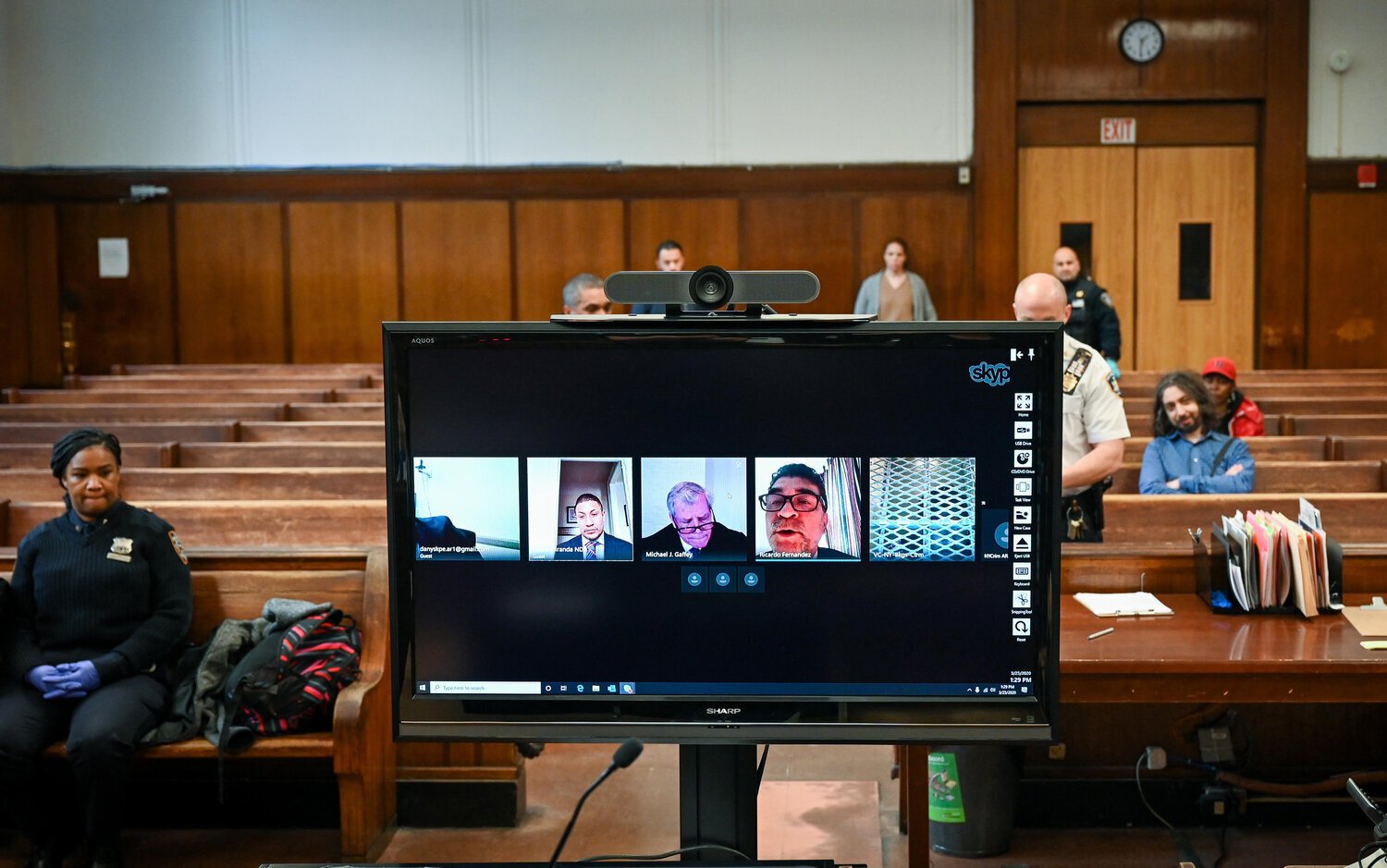Queens judges call on courts to go virtual
/As cases continue to rise in the courts, judges in Queens have begun to question the efficiency and safety of keeping courts open to in-person proceedings. Photo courtesy of OCA
By Jacob Kaye
The president of the Association of Supreme Court Justices last week called on the Office of Court Administration to shift away from in-person proceedings as COVID-19 cases rose to new heights throughout city, state and courts.
Queens Supreme Court Justice Carmen Velasquez, who leads the judicial organization and who has tested positive for COVID-19 herself, urged the OCA to make the move to virtual until the peak of the of COVID wave begins to fall off.
“I am extremely concerned about the health of our justices and court employees, and the health of all those who come into our courthouses,” Velasquez said in a statement. “That must be our paramount consideration.”
Velasquez’s request came as court officials issued new, detailed COVID-19 guidelines last week.
The guidelines, which fall in line with recent changes made in the Center for Disease Control’s recommendations, say that judges and court employees who test positive for the virus should quarantine for five days – not 10 – and can return to work after that period if their symptoms have completely or are currently resolving, regardless of their vaccination status. Upon returning, a well-fitting, disposable, non-woven mask must be worn at all times for the next five days, the guidelines say.
Court officials have also waived most physician documentation requirements – court employees and judges will no longer have to provide documentation in order to be excused for quarantine and isolation absences. However, if symptoms don’t resolve in the five period, court employees and judges must seek documentation from a health care provider in order to have the absences excused.
The new guidance also adds that court employees and judges will not be granted excused leave time for testing following an exposure – one hour of excused leave for testing is only available to employees required to undergo weekly surveillance testing, the guidelines say. Additionally, if a court employee’s child or household member has been directed to quarantine following an exposure, the court employee will not be permitted to work remotely or apply for Leave for Quarantine.
From the five day period of Jan. 2 through Jan. 6, over 580 judicial and nonjudicial staff statewide tested positive for COVID-19, according to the OCA. Over 235 of those infections came on Jan. 3.
“That's a lot of people [getting sick] and you are asked to come in and to work, exposing yourself and your family to this virus,” Velasquez told the Eagle. “All to do the same thing that I could do at home.”
When reached for comment, Lucian Chalfen, the spokesperson for the OCA, said that “Judge Velasquez has shown in her statement that she is both uninformed about our current policy and misinformed about the daily operations of our trial courts, especially when it comes to criminal cases.”
In a recent communication to court employees and judges from Chief Administrative Judge Lawrence Marks, the judge, who said the courts “have no plans to scale back” operations, said that beyond criminal cases, arraignments, grand jury practice, ongoing trials, CPL 180.80 and 170.70 proceedings and cases with incarcerated defendants, judges “should use their discretion to schedule virtual appearances.”
“In non-criminal proceedings, judges should evaluate each matter individually and strongly consider conducting a virtual proceeding, absent valid reasons for an in-person proceeding,” Marks said.
Beyond the health of the people who use and work in the courts, judges told the Eagle that they worry court operations are not running as efficiently as they would if most operations were virtual.
In Marks’ recent communication, he mentioned that 22 felony trials had been scheduled for the week before the holiday recess. Of those 22, “probably all” were delayed due to COVID-19, Chalfen said, adding that the exact number wasn’t readily available.
A Queens judge, who requested anonymity, said that there is “no doubt” that court operations are being affected by the rise in cases, adding that they believe Governor Kathy Hochul should pass an executive order allowing for all-virtual proceedings, with some exceptions where in-person participation is required.
“I'm doing my whole counter virtually and it's working fine,” the judge said. “If an executive order can permit – not a trial – but other things to be done virtually, I think we’d get more things done, frankly.”
A spokesperson for the Queens District Attorney’s office said that there was a notable increase in COVID cases in the DA’s office following the holidays, though the actual number of cases was unavailable.
“In order to safeguard staff and reduce spread of the virus, we recently implemented a hybrid virtual workplace,” the spokesperson said. “Those with offices continue to come in, others are working on staggered schedules to maintain social distancing. All staff must observe social distancing and wear masks, regardless of vaccination status. Meetings and interviews are being held virtually whenever possible.”
Both the health and efficiency concerns were echoed by a group of public defenders who rallied earlier in the week to demand court officials make the virtual switch.
“We did virtual arrangements for a year and it worked fine; it wasn't ideal but we’re in a pandemic,” said Queens Defenders staff attorney Shane Ferro. “I'm less effective when I'm scared [or] sick, or if all my colleagues are sick and we’re understaffed, which we're getting to a point where that's about to happen.”




